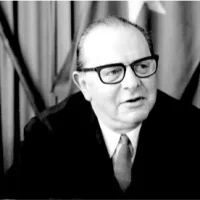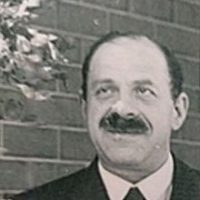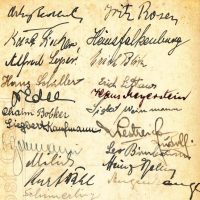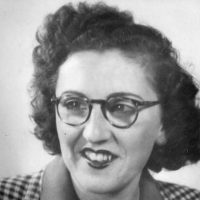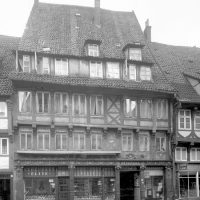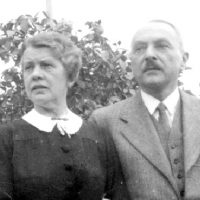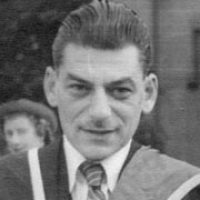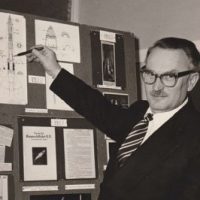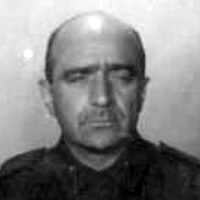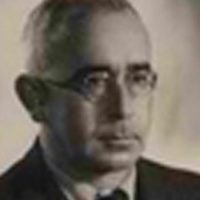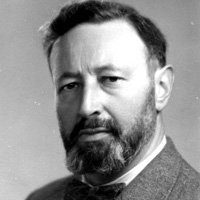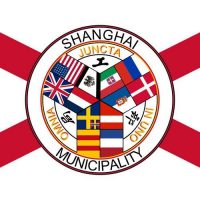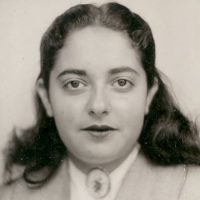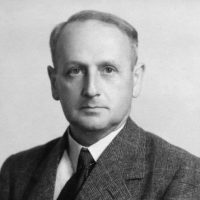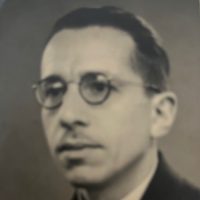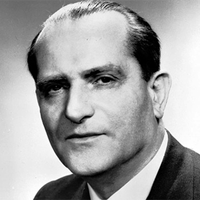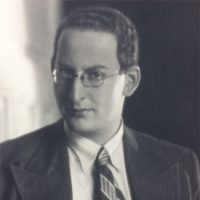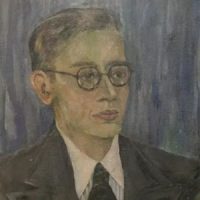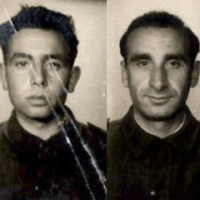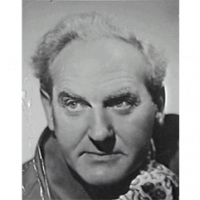Erich Tichauer, like Heinz Dehn a Dunera boy, was deported to Australia by the British. Erich was a religious Jew, Heinz a communist. So there was a lot separating the two. Nevertheless, Erich was a “best boy” of Heinz and Ida Dehn, the author’s parents. Unfortunately, only a few traces of Erich have been found. Nevertheless, we should not fail to set a small digital memorial stone for him.
Peter Dehn, January 2024.
The Best Boy
Erich Tichauer[1] Cf. National Archives of Australia (NAA), NAA_ItemNumber196114. was born on February 2, 1898 in Ratibor, Silesia (now Racibórz, Poland). His parents were Moritz Tichauer and Sophie Epstein[2] Marriage entry, city registry of Groß Strelitz no. 24 from Nov 25, 1883., who had married in 1883 in Groß Strelitz (now Strzelce Opolskie, Poland). He had four siblings. He served in the artillery during the First World War from 1916 to 1918, ultimately with the rank of corporal. His military service interrupted his vocational training in the leather industry. After the war, he found work in tanneries. In Berlin, he first worked in a leather factory, then in a shoe factory. In 1921, he returned to Ratibor to work in the factory for technical leather products that his father ran.
He was one of the Jews who were imprisoned[3] Wikipedia about Aktionsjuden (German), retrieved Nov. 20,2023. (“Aktionsjuden”) in the Buchenwald concentration camp[4] Cf. Buchenwald concentration camp change reports from Nov 26 to Dec 2 1938, Arolsen Archives 8012500072, retrieved July 20, 2023. after the pogrom night of November 9 and 10, 1938, in order to create a threat scenario against them.
In March 1939, he was able to flee to England with the support of the Jewish Refugees Committee and a guarantee from his sister Paula Magnus (1885 – 1879), who lived there, and her husband Dr. Georg Magnus. He was later engaged to an employee of the JRC. His sister Rosa Müller was already living in Melbourne.
After being classified as a non-internable foreigner in category “C” and staying in England for a year, he worked in a leather and shoe factory in Cardiff, Scotland. After this industry was declared essential to the war effort in June 1940, he lost his job as an “enemy alien” and in the wake of a fear of Nazi spies, which was also popularized by Prime Minister Churchill. He was taken to the Lingfield camp and was interned. Shortly afterwards, Great Britain relieved itself of the responsibility for more than 2,000 refugees who were deported to Australia on the Dunera.
He spent the first two years or so behind barbed wire in the Hay, Loveday and Tatura internment camps. In Camp 2 there, he organized and conducted the prisoners’ synagogue choir. This activity was finished with the end of his internment in 1942. The representatives of the Jewish community[5] Letter of thanks from Nov 15, 1942. Jewish Museum of Australia. in the camp thanked him:
Thanks to your musical abilities and vocal gifts, your comprehensive knowledge of lithurgical hymns and complete grasp of the spirit of the JEwish Devine Services you have succeeded in adding considerably to the beauty and dignity of our servicesespecially during the High Festival Days and the Sabbaths. Despite mounting difficulties, caused through friends leaving, you have kept the choir in good form until the last.
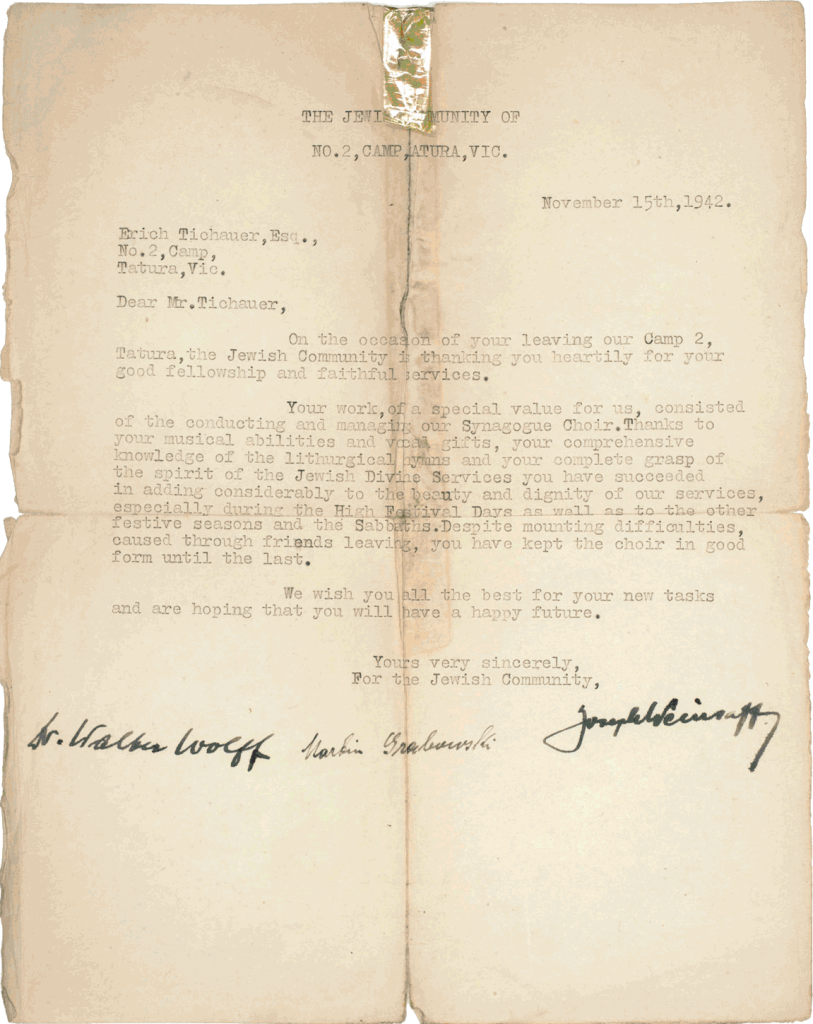
Like Heinz Dehn and many other ex-internees, the next stage of Erich Tichauer’s life took him to the 8th Employment Company, an Australian army[6] Australian Government, Dept. of Veteran’s Affairs, Certificate of service in World War 2. Familienarchiv Dehn. work unit made up exclusively of Jewish ex-internees. He served there from November 16, 1942 to February 28, 1946.
In July 1945, he applied for Australian citizenship[7] National Archives of Australia (NAA), NAA_ItemNumber780693.. He was officially naturalized[8] Certificate of Naturalisation of 13.7.1946, NAA_ItemNumber32094590. on 13 July 1946. He later anglicized his name to Eric Robert Towers.
In 1948 he married the widowed Grace Veronica Schmolka, née Hill (19.7.1909 – 27.10.1999). According to Australian electoral rolls, they lived in the Melbourne suburb of Elsternwick until at least 1980.
Shortly after the end of the war, Eric Towers and his father Moritz, who lived in London, tried to get restitution[9] National Archives of Australia (NAA), NAA, NAA_ItemNumber196114 for the leather goods factory in Ratibor, which had been expropriated by the Nazis. The attempts failed. On the one hand, the former house bank, now based in West Germany, was unable or unwilling to provide any information due to alleged wartime destruction. Secondly, the research was blocked by differences with the Soviet Union and Poland at the beginning of the Cold War.
Eric Towers died[10] Cf. files on ancestry.de on February 6, 1988.
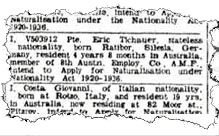
Erich fulfils his duty to announce the application for naturalisation in the daily press (The Age, 19 May 1945).
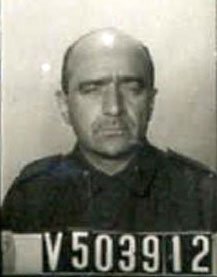
The only known photo comes from Erich’s army file.
Source: NAA_ItemNumber6259385.
Footnotes
show
- [1]↑Cf. National Archives of Australia (NAA), NAA_ItemNumber196114.
- [2]↑Marriage entry, city registry of Groß Strelitz no. 24 from Nov 25, 1883.
- [3]↑Wikipedia about Aktionsjuden (German), retrieved Nov. 20,2023.
- [4]↑Cf. Buchenwald concentration camp change reports from Nov 26 to Dec 2 1938, Arolsen Archives 8012500072, retrieved July 20, 2023.
- [5]↑Letter of thanks from Nov 15, 1942. Jewish Museum of Australia.
- [6]↑Australian Government, Dept. of Veteran’s Affairs, Certificate of service in World War 2. Familienarchiv Dehn.
- [7]↑National Archives of Australia (NAA), NAA_ItemNumber780693.
- [8]↑Certificate of Naturalisation of 13.7.1946, NAA_ItemNumber32094590.
- [9]↑National Archives of Australia (NAA), NAA, NAA_ItemNumber196114
- [10]↑Cf. files on ancestry.de
